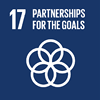How does raising income tax affect government revenue or economic inequality? What are the costs and benefits of implementing a state pension? Which social protection policies are most effective in reducing poverty?
Tax-benefit microsimulation models help answer such questions, providing valuable insights for improving policy-making and promoting inclusive development. The models make it possible to assess and compare the potential impacts of different policy scenarios on poverty, inequality, and government revenues. This makes them a useful tool for researchers and policy makers alike.
Tax-benefit microsimulation models combine detailed coding of tax and benefit legislation with representative household level data on incomes and expenditures. In the models, user-defined policy rules are applied to the micro-data to calculate the effects of these rules on household income.
Models for developing countries
While microsimulation models are routinely used by researchers and policy makers in developed countries, few developing countries have access to such tools. Many developing countries are in the process of building up their social protection systems, and the financing of public spending will need to be increasingly based on domestic tax revenues. In this process, understanding the system-wide impacts of different policy choices is critically important, and tax-benefit microsimulation models are particularly well suited for this purpose.
This is the backdrop against which UNU-WIDER launched SOUTHMOD, a major research project to develop tax-benefit microsimulation models for selected developing countries. UNU-WIDER currently hosts seven models for countries in Africa (Ethiopia, Ghana, Mozambique, Rwanda, Tanzania, Uganda, Zambia), four in Latin America (Bolivia, Colombia, Ecuador, Peru) and one in Southeast Asia (Viet Nam), complementing models developed previously for South Africa and Namibia. The models are continuously updated and used for research and policy analysis by UNU-WIDER and partners. The project is based on joint work with the Southern African Social Policy Research Insights (SASPRI), the International Inequalities Institute at the London School of Economics and Political Science, and national teams based in the countries for which the models are built.
The SOUTHMOD country models and the associated input data are freely available for non-commercial research use. All models are included in the SOUTHMOD bundle. You can apply for access here, indicating the country models for which you would need the respective input datasets. For the Bolivia, Peru, Rwanda and Viet Nam models we can only share the Stata do-files necessary to produce the underpinning input dataset. Models for Namibia (NAMOD) and South Africa (SAMOD) are available from SASPRI.
The second phase of the research programme
The second phase of the SOUTHMOD project has involved extending the country coverage of the models and incorporating new data into the existing models. Regular training events delivered by the national SOUTHMOD teams resume, South-South learning is promoted, and capacity development is facilitated through online training.
In addition, the models are used for both academic and policy-oriented research.
The second phase generates research findings on the following questions:
- What is the impact of tax systems on informality?
- How should social protection benefits be targeted?
- How important are in-kind benefits for the overall tax-benefit system?
In response to the COVID-19 crisis, research is also conducted on the role of tax and benefit policies in mitigating poverty and inequality during the pandemic.
In the process, the local uptake of research on topical questions in different countries is encouraged. Research findings are disseminated via a number of outlets, from working papers and research briefs to policy notes, blog posts, opinion pieces and videos.
EUROMOD platform
SOUTHMOD models are based on the EUROMOD platform originally maintained, developed and managed by the Institute for Social and Economic Research (ISER). Since 2021, EUROMOD has been maintained, developed and managed by the Joint Research Centre (JRC) of the European Commission. EUROMOD is not only a widely-used tax-benefit model for European countries but also a purpose-built software that offers an ideal platform for developing microsimulation models for new countries.
Cross-country comparability across SOUTHMOD models, which have been merged into a single bundle in 2023, is ensured by organizing their input data and coding the policies according to a common framework. This framework is based on a standard set of modelling conventions, the so-called SOUTHMOD modelling conventions. Users are also encouraged to review the SOUTHMOD user manual, a comprehensive instruction manual and a guide on the basic operations of the model.
Watch this space
All papers, events, briefs, blog posts, and opportunities to engage relating to this project will be available on this webpage.
For information on the first phase of the project read more here.
Improving capacities for tax and other domestic revenue collection is a key target of SDG 17. In addition, SDG 16 is dedicated to the promotion of inclusive societies with effective and accountable institutions. Furthermore, tax capacity is closely linked to the ability of governments to offer better public services to end poverty (SDG 1), reduce inequalities (SDG 10), and ensure sustainable economic growth (SDG 8). Good governance in the area of tax and social protection is a key factor in efforts to improve women and girls’ living standards as they are more dependent on efficient public service delivery (SDG 5).

 Join the network
Join the network


